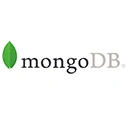Data governance is crucial for maintaining data quality, security, and compliance. MongoDB offers advanced features and best practices to ensure effective data governance. In this in-depth guide, we'll explore advanced data governance techniques and provide sample code snippets for reference.
1. Role-Based Access Control (RBAC)
MongoDB's Role-Based Access Control allows fine-grained control over who can access and modify data. Here's an example of creating a user with specific privileges:
db.createUser({
user: `data-analyst`,
pwd: `secure-password`,
roles: [
{ role: `read`, db: `mydb` },
{ role: `listCollections`, db: `mydb` }
]
})
2. Auditing and Compliance
Enable auditing in MongoDB to track database activities. You can specify auditing options to capture specific events or data access patterns. Here's an example of configuring auditing:
systemLog:
destination: file
path: `/var/log/mongod.log`
auditLog:
destination: file
path: `/var/log/mongod-audit.log`
format: JSON
3. Data Masking and Encryption
Protect sensitive data with encryption and data masking. MongoDB supports encryption at rest and in transit. You can use the `$redact` aggregation stage for data masking. Here's a simple data masking example:
db.collection.aggregate([
{
$redact: {
$cond: {
if: { $eq: [ `$level`, `sensitive` ] },
then: `$$PRUNE`,
else: `$$DESCEND`
}
}
}
])
4. Data Validation Rules
Implement data validation rules to ensure data quality. Define validation rules at the collection level to enforce data integrity. Here's an example of creating a validation rule:
db.createCollection(`mycollection`, {
validator: {
$jsonSchema: {
bsonType: `object`,
required: [`name`, `email`],
properties: {
name: {
bsonType: `string`,
description: `Name must be a string.`
},
email: {
bsonType: `string`,
description: `Email must be a string.`
}
}
}
}
})
5. Data Governance Policy
Define a data governance policy that outlines data usage, access control, and compliance requirements. Regularly review and update the policy to adapt to changing data governance needs.
These are some advanced data governance best practices in MongoDB. Effective data governance ensures data remains secure, compliant, and of high quality. Implement and tailor these practices to your organization's specific requirements.
For more detailed information and best practices, consult the official MongoDB documentation on security and data governance.

